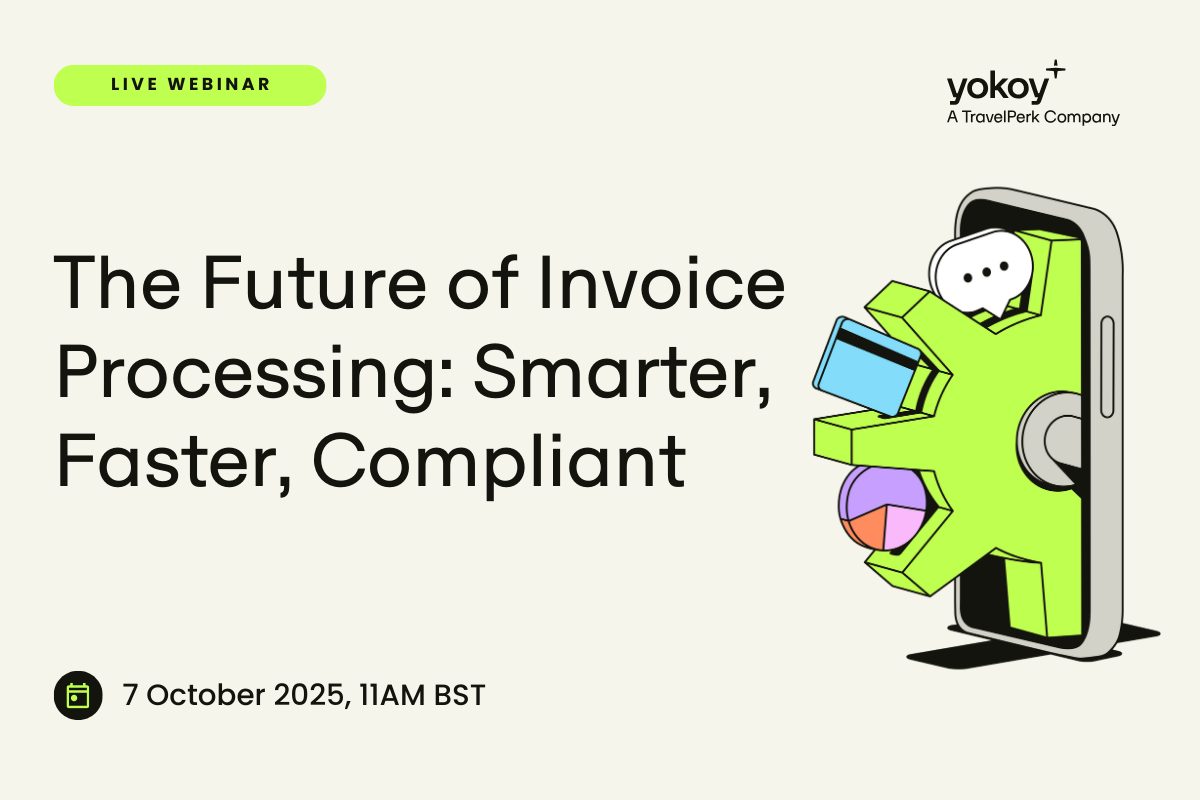
If you’ve ever tried to book a straightforward business trip only to end up tangled in a mess of fare classes, missing receipts, and questionable expense claims, you’re not alone. Welcome to the ever-evolving world of corporate travel—now undergoing a profound glow-up thanks to NDC (New Distribution Capability).
This airline-led tech upgrade is shaking the status quo, replacing the old Global Distribution Systems (GDS) model with a more direct and dynamic way to shop for flights. On the surface, it sounds like a dream: think transparent pricing, bespoke fare bundles with extras your travellers need, and improved policy compliance by booking straight through the airline.
With NDC, many companies find that integration with travel management systems isn’t always seamless: Not all carriers have fully leaped yet, which can make expense tracking messy, especially when rich content replaces structured data.
AI-powered tools are stepping in, helping finance teams and corporate travel managers monitor bookings, spending, and compliance in real time.
Let’s find out the highs and lows, how NDC is reshaping business travel, and how smart tech can help you stay ahead.
What is NDC?
NDC is a modern airline distribution standard developed by the International Air Transport Association (IATA) to replace the outdated GDS. It enables direct connections between airlines and travel management companies (TMCs), travel agencies, or corporate booking tools via APIs. Airlines can now offer richer content, including dynamic pricing, fare options, and personalised ancillary services like Wi-Fi onboard or extra baggage. Unlike the fixed and limited fare displays typical of traditional systems, NDC supports real-time, tailored offers based on a traveller’s specific business travel needs.
Airlines are increasingly shifting away from GDS platforms to gain more control over how their content is presented and priced. While this allows for more agile, cost-effective distribution, some carriers still operate hybrid models—offering a mix of GDS and NDC content. This can cause fragmentation and inconsistency for businesses.
For companies managing corporate travel programs, NDC brings several advantages, including improved pricing transparency, access to exclusive fares, and greater customisation of the travel experience. However, these benefits come with more complex expense tracking, and many legacy travel management platforms struggle to integrate with newer NDC-based systems. Today, AI-powered travel solutions can streamline the booking process, ensure real-time visibility, and simplify compliance in an evolving travel landscape.
Blog article
How to Choose the Ideal Expense Management Software: Requirements and Features
How to choose the best expense management software for your company size. Improve efficiency and save costs with the right expense tracking solution.

Lars Mangelsdorf,
Co-founder and CCO
How NDC is reshaping corporate travel booking
Introducing NDC fundamentally transforms how companies approach corporate travel booking. Traditionally, businesses have relied on GDSs, such as Sabre or Amadeus, to access airline fares and availability. While efficient, these systems offer limited flexibility, standardised content, and often outdated fare structures.
With NDC adoption rising, airlines can now provide corporate customers with real-time access to more granular and flexible pricing. Rather than displaying fixed fares, NDC supports dynamic pricing, allowing businesses to see up-to-date offers that reflect current demand, traveller preferences, and even company-specific negotiated rates. This improves pricing transparency and gives finance teams better visibility into spending.
Another major shift is the move away from GDS dependency. Airlines incur significant costs when distributing content through GDS platforms, and these costs are often passed on to the end customer. Leveraging direct connections via NDC can reduce or eliminate additional fees. This enables airlines to offer more competitive rates, bundled offers, or exclusive discounts to businesses that book directly. For travel managers, this translates into greater control over spending and more options for selecting suppliers within their corporate travel programmes.
NDC opens the door to a more modern, retail-like travel experience for business travellers. Rather than a one-size-fits-all fare, NDC content can include ancillary services such as lounge access, priority boarding, seat selection, and even carbon offset options. These personalised options can be tailored to different traveller profiles within a company, offering a more seamless travel experience that aligns with employee expectations and company travel policies.
The pros and cons of NDC for corporate travel management
As corporate travel adapts to new NDC, travel managers and finance leaders weigh the benefits against the challenges.
Pros of NDC for corporate travel management
Greater fare transparency and access to exclusive pricing: Businesses gain direct access to airline fare data, bypassing the standardised and sometimes outdated pricing in GDS. This enables companies to view real-time, dynamically generated fares. As a result, finance teams and corporate travel managers can make better-informed decisions and improve overall pricing transparency across the organisation.
Personalised travel experiences with add-ons tailored to business travellers: NDC supports a more modern retailing model, offering tailored ancillary services such as seat upgrades, additional baggage, in-flight Wi-Fi, or lounge access. All of these can be configured based on a traveller’s profile or role within the company. This elevates the travel experience for employees while aligning with the company’s travel and expense policies.
Better policy compliance through direct airline bookings: Employees using NDC-supported platforms can be guided to fare types, routes, and policy-compliant service levels by default. This reduces the need for manual oversight or post-trip audits by finance teams or travel managers, enhances policy adherence, and lowers the risk of out-of-policy travel spend.
Cons of NDC for corporate travel management
Integration challenges with corporate travel management platforms: NDC adoption can complicate integration with existing travel management systems despite the benefits. Many traditional platforms were built around GDS infrastructure and are not yet fully equipped to handle the complex fare options or real-time updates provided by NDC. This can result in fragmented workflows, limited content visibility, or duplicated systems, leading to inefficiencies.
Expense tracking difficulties: One of the unintended side effects of NDC’s flexibility is increased complexity in expense tracking. Traditional expense management systems are often calibrated for standard fare structures with predictable formats. The level of customisation and dynamic NDC offers can lead to inconsistent data capture, making it harder for finance teams to reconcile costs or audit expenses.
Some airlines still rely on GDS systems: While many carriers embrace NDC, the airline industry is still transitional. Some airlines continue to rely on legacy GDS platforms or offer only partial NDC content, which creates gaps in availability and consistency. This fragmented environment complicates travel planning, especially for companies with global operations, where access to uniform content across all providers is critical for effective corporate travel programmes.
Blog article
Simplifying Expense Management: How Corporate Cards Benefit Businesses of All Sizes
Although most corporate card programs offer cash back on transactions, these savings aren’t the main driver for companies who choose to equip their employees with business credit cards or debit cards.

Francesca Burkhardt,
Product Marketing
How businesses can adapt to NDC
To fully unlock the benefits of NDC bookings, businesses should prioritise partnerships with fitting TMCs. However, not all agencies or travel solutions offer complete NDC functionality. In addition, traditional policy controls are mostly built around GDS workflows. They may not apply to modern standards, especially when fare types and ancillary options vary significantly from one airline to another.
Corporate travel managers should work closely with finance and HR stakeholders to redefine rules around approved fare classes, bundled services, cancellation terms, and traveller eligibility. Embedding these policies directly into booking tools and integrating them with NDC platforms ensures compliance at the point of booking, reducing the need for manual review and improving traveller autonomy within controlled parameters.
One of the biggest challenges with NDC adoption in modern travel management is the complexity it introduces to expense tracking. Because it includes more variables, such as personalised add-ons, dynamic fare structures, and customised itineraries, outdated expense management may struggle to accurately categorise and reconcile these costs.
But by integrating AI power, spend management tools become game-changers. These solutions use intelligent automation to capture, classify, and analyse real-time business travel expenses. Even when data originates from non-standard formats or direct airline bookings, AI can help. With smart AI tools, spending limits can be enforced, or anomalies can be detected in the blink of an eye.
The role of AI in managing NDC-driven corporate travel
With AI becoming essential for controlling costs, compliance, and complexity, your business can profit from modern solutions like Yokoy. Integrating NDC can give finance leaders full visibility over travel expenses, reduce administrative workload, and support more agile decision-making across finance and procurement.
Automating corporate travel expense tracking
AI streamlines the messy task of tracking business travel expenses by automatically extracting and categorising costs from receipts, invoices, and card data. Yokoy captures and reconciles travel expenses in real time, matching NDC content charges for flights, seat upgrades, or Wi-Fi directly to policies and cost centres—saving time and reducing errors.
AI-powered fraud detection
The risk of out-of-policy spending or duplicate claims increases with the number of journeys booked. AI identifies suspicious patterns and flags these frauds before they become costly. Anomalies like unapproved fare types or duplicate NDC bookings are flagged within Yokoy’s dashboard, alerting approvers instantly and protecting your travel budget from misuse.
Ensuring compliance through policy enforcement
AI can help enforce travel policies automatically at the point of booking or expense submission, reducing manual checks and improving consistency. Yokoy applies company-specific rules in real time, blocking non-compliant bookings and ensuring only approved fare options and extras are reimbursed.
Real-time analytics for business travel spend
AI enables your business to monitor expenses across all travel providers and channels. With Yokoy’s central dashboard and integrated live insights into spending trends, policy compliance, and travel behaviour, you get empowered to make smarter decisions for your corporate travel programme.
Next steps
Ready to take control of your NDC-driven corporate travel? Discover how AI can streamline travel booking, enforce policy compliance, and give you real-time spending visibility.
Book a demo today and see how an intelligent, automated approach can optimise your business travel workflow—from booking to expense reconciliation.
In this article
See intelligent spend management in action
Book a demoRelated content
If you enjoyed this article, you might find the resources below useful.


